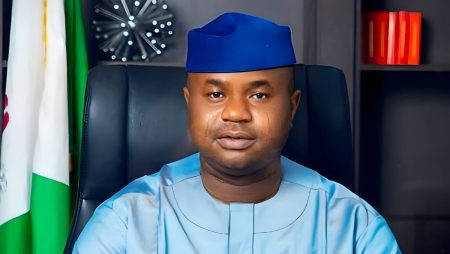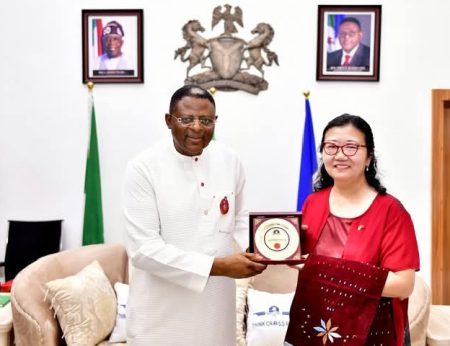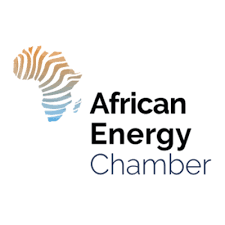
Mkpoikana Udoma
Port Harcourt — The Economic and Financial Crimes Commission, EFCC, has charged the Corporate Affairs Commission, CAC, to always make speedy responses to enquiries made by the Commission and other Nigerians on issues referred to it, in the fight against corruption.
Executive Chairman of EFCC, Mr. Ola Olukoyede, gave the charge when he received the Registrar-General of the CAC, Hussani Ishaq Magaji, SAN, and his management team during a courtesy call at the Commission’s corporate headquarters.
Olukoyede noted that both EFCC and CAC were handling sensitive and crucial assignments for Nigerians, hence must make responses to public enquiries quicker and better.
He, however, assured the CAC team of the Commission’s cooperation, stressing that it might be necessary to raise a small-member joint task force between the two Commissions to improve on synergy and access to information in order to boost investigations.
“We are grateful for the access that you have provided for us to some of your information and resources, but we want to crave your indulgence to ensure a speedy response to our requests and better synergy because of the nature of the work we do.
“Corruption in Nigeria has become a cankerworm militating against our development. Anything that has to do with investigation and prosecution and other activities that will reduce corruption must be taken as a priority by every Nigerian.
“Because of the nature of the work we do, we need to collaborate even more. We want to crave your indulgence to expand the scope of the access you have provided for us. A few of your people can join our own people and let’s form a team to make this work easier for us, just a small joint task force,” he said.
Earlier, the Registrar-General of CAC, Hussani Ishaq Magaji, SAN announced that the Commission under his leadership has dedicated a desk to attend to EFCC’s matters in recognition of the strategic work of the anti-graft agency in Nigeria.
“As a result of the importance of the EFCC, CAC under my leadership has dedicated a unit to respond to the daily requests of the EFCC. Even though we have witnessed migration from the manual to automation, in doing that we provided some access for the EFCC to enable the Commission achieve its mandate.”



